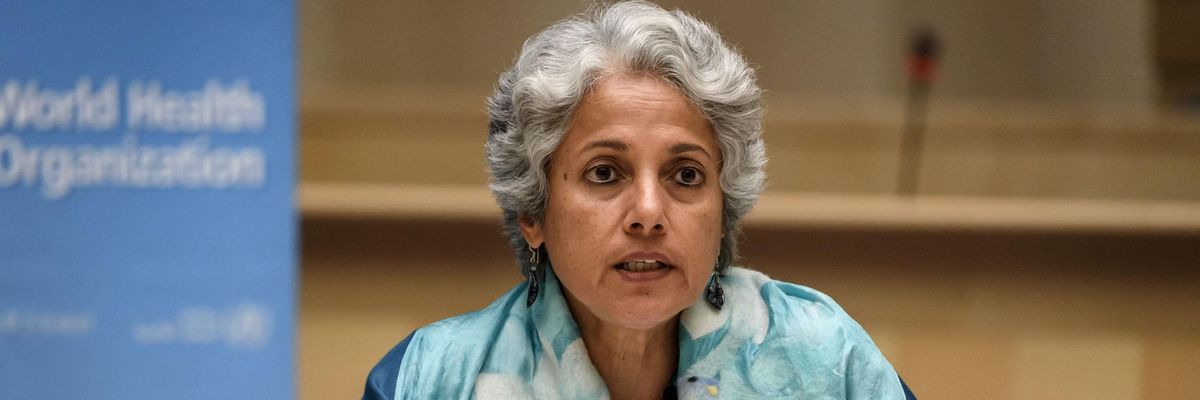The World Health Organization on Monday classified a coronavirus mutation first detected in India as a "variant of concern" for global health, warning that it appears to be more contagious than other strains.
Experts believe the variant, formally known as B.1.617, could be a key driving force behind the devastating coronavirus surge in India, which has been reporting more than 300,000 new infections daily over the past two weeks as the nation's vaccination program is hampered by shortages that could last months.
Maria Van Kerkhove, the WHO's technical lead for Covid-19, said during a press conference that while "we need much more information about this virus variant," preliminary studies of the mutation have demonstrated "increased transmissibility."
On Twitter, WHO chief scientist Soumya Swaminathan stressed that there is not yet enough information to determine whether the strain is able to evade vaccines or therapeutics and said her organization will be "updating variant data continuously."
"The pattern now is that one person in the family gets it, the whole family seems to get it," Swaminathan told the Wall Street Journal on Monday. "This is unlike the first wave. And so I think what we're seeing is more transmissible."
First identified in India in December, the B.1.617 variant has since been detected in the United Kingdom, the U.S., Bangladesh, France, and other nations.
The WHO's reclassification of B.1.617--which was previously labeled a "variant of interest"--came as experts and progressive campaigners continue to warn that people across the globe will remain in danger as long as public health measures are flouted and the coronavirus is allowed to spread uncontrolled among populations without access to vaccines.
"With Africa accounting for only around 2% of global coronavirus vaccinations, health officials on the continent are looking warily at waves of infections sweeping India and elsewhere that have stoked fears of a long tail end of the pandemic," the Washington Post reported Sunday. "Current timelines for mass vaccination campaigns in most African countries run well into next year--if not further."
In late March, epidemiologists from dozens of countries said they believe the international community has "a year or less" before coronavirus variants spread widely enough to render a majority of first-generation vaccines ineffective--a nightmare scenario for the world and a major profit opportunity for the pharmaceutical industry.
"With millions of people around the world infected with this virus, new mutations arise every day," Gregg Gonsalves, associate professor of epidemiology at Yale University, said in March. "Unless we vaccinate the world, we leave the playing field open to more and more mutations, which could churn out variants that could evade our current vaccines and require booster shots to deal with them."




